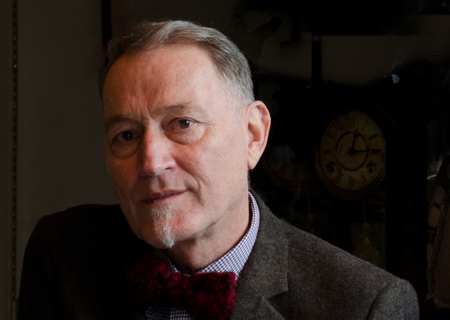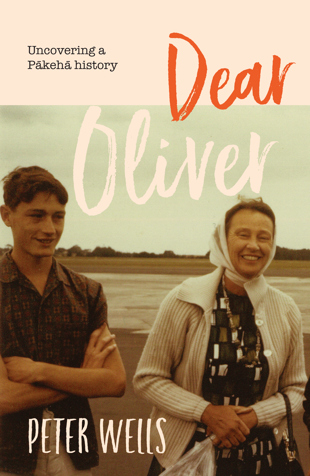1. Why did you want to write this book?
Dear Oliver was a book that had been in my mind for years, and the time arrived to write it.
2. It’s the third and final book in your ‘Napier trilogy’. Can you tell us about the other two?
The other two books look at Napier as a kind of colonial space, richly detailed and nuanced. I was always imagining my family members walking down the streets or popping their heads into theatres or court rooms. The three books have themes that run through each — isolation, community, struggle, identity — and I suppose the incredible richness of the place.
3. Did you have this one in mind as you were working on the others?
I always knew I would write this book, but I wasn’t sure in what form.
4. As you say in the book, Pākehā history has rather fallen out of fashion if not favour. Will this book restore some sort of balance?
I’m hoping it opens up a conversation which sees all of our histories as interrelated. You can’t understand Māori history without Pākehā history, and vice versa. There is an enriching conversation to be had.
5. In what way is your family, the Northes, representative of every Pākehā New Zealand family?
They came from struggle street and made something of themselves, but did this through a lot of hardship, living through a major earthquake, economic depression and wars. But they had something tough in them, a survival gene that saw some of them flourish and others be quite happy to just survive in a small-town context.
6. Writing Dear Oliver: exhilarating or exhausting?
A book always starts out exhilarating, as you’re exploring something — in this case a subject I had wanted to write about since childhood. As time goes by, the book takes on its own ‘rules of landscape’. It develops its own form and you have to write within that landscape to better express it. It becomes not more difficult, but more intense. You occupy the landscape day and night, watching a movie, eating dinner. Then it becomes your total world and your struggle is to best express what is in this landscape you occupy 24/7. By this stage, yes, it becomes exhausting, but in the way of an obsession or a vision that you wish to be truthful towards. Then suddenly the book is written and the project changes again as goes through a carful editing, which could be said to be a culling — the removal of extraneous bits that don’t illuminate the main thread of the story. This can take quite some time. So all in all the ‘conversation’ behind a book can be vast, just as the landscape that the author knows so intimately can only be guessed at. But you hope the resonance is there, like the deep ring of a bell … and the silence that follows after is all the unsaid things and implications linger in the air …
7. Tell us about how you write. What time of day is best?
Mornings after a strong coffee. This usually leads to a two- to three-hour work burst. Often overnight I have also thought of things. But definitely in the morning.
8. What are your strategies on those days when things don’t flow so well?
There’s always things to check on or you can just go and do something else and that unlocks the kink.
9. What’s one new thing you discovered while working on this book?
That I wish I was better with dates and maths. Especially with birth dates and death dates. I’m utterly hopeless, so every date had to be double-checked.
10. What are you reading at the moment?
I am going into chemotherapy for cancer soon so my reading is all over the place, I finished A. N. Wilson on Tolstoy a few days ago and that was a good, long, contentious read. I like an opinionated author, perhaps a little like myself.


